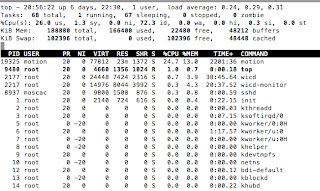Nexus 7 by Asus
I bought my wife an Asus Nexus 7 back in mid February. A few weeks ago it stopped working. The unit would not come on at all. After looking around for help on the web, we called both Google and Asus and ultimately had to RMA it back to Asus shipping on us via FedEx. Apparently this is not an uncommon problem . The phone calls to both Google and Asus involved a great deal of time and some effort to walk through the various attempts at diagnosis and revival. These included charging cycles and button pushing/holding combinations none of which brought the brick back to life. I will note that the courtesy and sympathy levels of the Google folks seemed much higher than anyone I spoke to at Asus. Today the brick arrived at our home via FedEx in a non-working state. Asus wants to reopen the RMA and have us send it back once again. This time shipping is on them. We will be without this device for at least one month. It would be nice to have a w...


